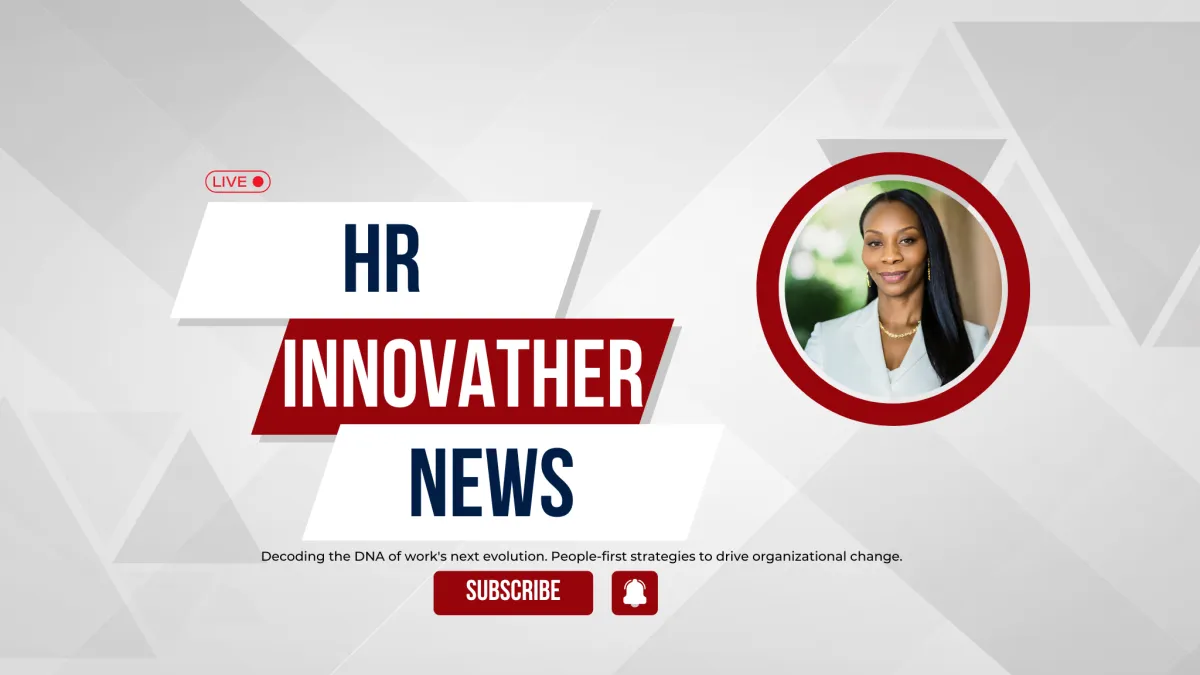

Bridging the Skills Gap: How HR Can Boost Employee Confidence and Security
Addressing Skills Gaps: A Strategic Approach for HR Professionals
Skills gaps, the mismatch between employees' abilities and the skills needed for organizational success, are a growing concern across industries. Nearly 90% of executives and managers believe they are facing or soon will face skill gaps within their teams. The implications go beyond lowered productivity—skills gaps can directly affect employee morale, engagement, and overall business growth.
HR professionals are crucial in mitigating these gaps. By taking a strategic approach to talent development, HR can help organizations not only address skills shortages but also future-proof their workforce for upcoming challenges. In this blog post, we will explore practical strategies HR can implement to effectively identify and close skills gaps.
Why Addressing Skills Gaps is Urgent
The business landscape is evolving rapidly, driven by advances in technology, automation, and changes in market demands. Skills gaps arise when the skills employees currently possess no longer align with the organization's needs. If left unaddressed, these gaps can create bottlenecks in business operations, hinder innovation, and negatively impact employee retention.
For companies to stay competitive, they must adopt a proactive approach to addressing these skills gaps. The urgency of this task cannot be overstated—failing to do so puts companies at risk of falling behind in an increasingly dynamic business environment.
Continuous Learning and Development: A Cornerstone of Success
In today’s fast-paced work environment, continuous learning is not a luxury—it’s a necessity. Organizations must foster a culture where learning and development are ongoing processes. This involves more than traditional training programs; it’s about embedding a mindset of continuous improvement into the daily fabric of the organization.
HR professionals can spearhead initiatives that make learning part of employees' everyday work. Some practical ways to do this include:
- Offering e-learning platforms: Providing access to digital learning platforms such as LinkedIn Learning or Coursera ensures employees can continuously upskill in a flexible manner.
- Hosting internal workshops: Regular workshops tailored to new and emerging industry trends can help employees stay ahead of the curve.
- Incorporating learning into daily routines: Simple practices like team knowledge-sharing sessions during meetings, or encouraging staff to spend a few minutes a day on learning resources, can go a long way in fostering a culture of development.
A focus on upskilling and reskilling employees benefits not only the individual but also the organization, making it more adaptable and resilient to future changes.
Mentorship and Collaboration: Learning From Within
Mentorship programs are an invaluable resource for closing skills gaps. By connecting less experienced employees with seasoned mentors, organizations can facilitate knowledge transfer in a hands-on, practical way. This approach offers several key benefits:
- Personalized learning: Mentorship provides individualized guidance that often goes beyond what formal training programs can offer.
- Leadership development: Mentors benefit too, as the experience helps them hone their leadership and coaching skills.
- Peer learning: Collaboration among employees fosters a team-oriented environment where knowledge flows freely, and team members learn from each other’s expertise.
Cross-functional collaboration is another effective strategy. Encouraging employees from different departments to work together exposes them to a variety of skills and perspectives, enhancing their problem-solving abilities and broadening their skill sets. Collaborative projects also break down silos, promoting innovation and adaptability across the organization.
Personalized Career Progression Plans
One-size-fits-all career plans no longer work in today’s dynamic work environment. To effectively close skills gaps, HR professionals should personalize career progression plans based on each employee’s strengths, goals, and areas for improvement.
These plans should serve as dynamic roadmaps that evolve alongside employees. By setting clear, actionable steps for skills development and career advancement, HR can ensure that employees remain engaged and invested in their own growth.
- Regular performance reviews: These should go beyond measuring KPIs and instead focus on identifying skills gaps and creating tailored development opportunities.
- Goal-setting: Help employees set SMART (Specific, Measurable, Achievable, Relevant, and Time-bound) goals for both short-term skills acquisition and long-term career development.
- Internal mobility: Encourage employees to explore different roles within the company, providing them with the opportunity to diversify their skills and find new areas of interest.
Tailoring career plans in this way ensures that the skill development process is not only focused on the organization's immediate needs but also aligned with employees’ personal ambitions.
Real-World Example: Amazon's Approach to Bridging Skills Gaps
One of the most prominent examples of a company addressing skills gaps proactively is Amazon. Faced with a looming shortage of qualified workers for future roles, Amazon launched a massive upskilling initiative to ensure its workforce remains competitive.
The company committed $700 million to reskill 100,000 employees by 2025. The initiative focuses on preparing workers for advanced roles in areas like cloud computing, machine learning, and robotics. This investment highlights the importance of planning for the future and equipping current employees with the skills they need to thrive in an evolving marketplace.
Amazon’s approach demonstrates that skills gaps can be seen as opportunities rather than challenges. By investing in their workforce today, they are not only closing existing skills gaps but also future-proofing their business for the years ahead.
Measuring Success and Adjusting as Needed
Once your reskilling and upskilling initiatives are in place, it's crucial to continually monitor and measure their effectiveness. Regular assessments allow HR to fine-tune programs, ensuring they meet both organizational and employee needs.
Some key performance indicators (KPIs) to track include:
- Employee engagement and retention rates: A well-implemented development program should lead to higher employee satisfaction and lower turnover.
- Skills acquisition: Measure the rate at which employees acquire new skills and apply them in their roles.
- Business performance metrics: Track how improvements in skills impact overall productivity, innovation, and business outcomes.
Feedback loops, where employees can provide input on the effectiveness of the programs, are equally important. Gathering insights from participants allows HR to continuously refine strategies and keep them aligned with real-world needs.
Skills gaps are an inevitable challenge in today’s fast-evolving business world. However, with the right strategies, HR professionals can turn this challenge into an opportunity. By fostering a culture of continuous learning, promoting mentorship and collaboration, and creating personalized career progression plans, organizations can not only close skills gaps but also ensure sustained success in the future.
HR’s role in addressing these gaps is vital, and with proactive planning and implementation, companies can remain competitive, agile, and ready for the future. If your organization is facing skills gaps, now is the time to take action and invest in the development of your workforce.
Fractional HR to Go: Strategic Leadership On Demand
Seek Ameena Guidance

Are you seeking expert HR guidance to enhance your business's human resources strategy without the commitment of a full-time HR executive hire? Need a seasoned Fractional HR Consultant to provide strategic insights or support your HR initiatives? Look no further than our Fractional HR Consulting and HR Leadership Support service!
Tailored for well-funded startups, non profits and medium to large organizations, our Fractional HR service offers the strategic insight and experience of an external HR executive, injecting vitality into your HR initiatives.
Ameena's Unique Approach:
Unlike traditional consulting firms, our Fractional HR service focuses on delivering unbiased, expert advice tailored to your organization's best interests. With extensive experience in HR leadership, Ameena excels in collaborating with your existing teams to bridge gaps, unify efforts, and drive toward a shared vision for HR success.
Ameena's Promise:
Unlike traditional consulting firms, our Fractional HR service focuses on delivering unbiased, expert advice tailored to your organization's best interests. With extensive experience in HR leadership, Ameena excels in collaborating with your existing teams to bridge gaps, unify efforts, and drive toward a shared vision for HR success.
Personalization & Discovery:
Each organization is unique, and we believe in personalized solutions. Let's start with a discovery call to explore how our Fractional HR service can meet your organization's specific needs.
Fees:
Fees range from $5,000 to $20,000+ per month, depending on the scope and complexity of services provided.

Benefits
Executive-level Insight:
Access the strategic foresight and expertise of a seasoned HR executive to steer your HR initiatives toward success.
Enjoy top-tier HR leadership customized to your company's needs without the overhead costs of a full-time executive hire.
From refining your HR processes to fostering a positive workplace culture and aligning HR strategies with business objectives, experience comprehensive HR growth under expert guidance.
SERVICES SCOPE

HR Audit
A comprehensive assessment of your HR processes, policies, and practices to identify areas for improvement.

Strategic Alignment
Align HR initiatives with business goals and objectives to drive organizational success.

Change Management Guidance
Assist in managing organizational change effectively, including digital transformation initiatives and cultural shifts.Talent

Acquisition and Development
Develop strategies for attracting, retaining, and developing top talent to support business growth.

Integration & Training
Assist in integrating HR systems and software, as well as providing training and development opportunities to enhance HR competencies within your team.

Brand Culture Development
Cultivate a strong company culture aligned with your brand values to enhance employee engagement and retention.



